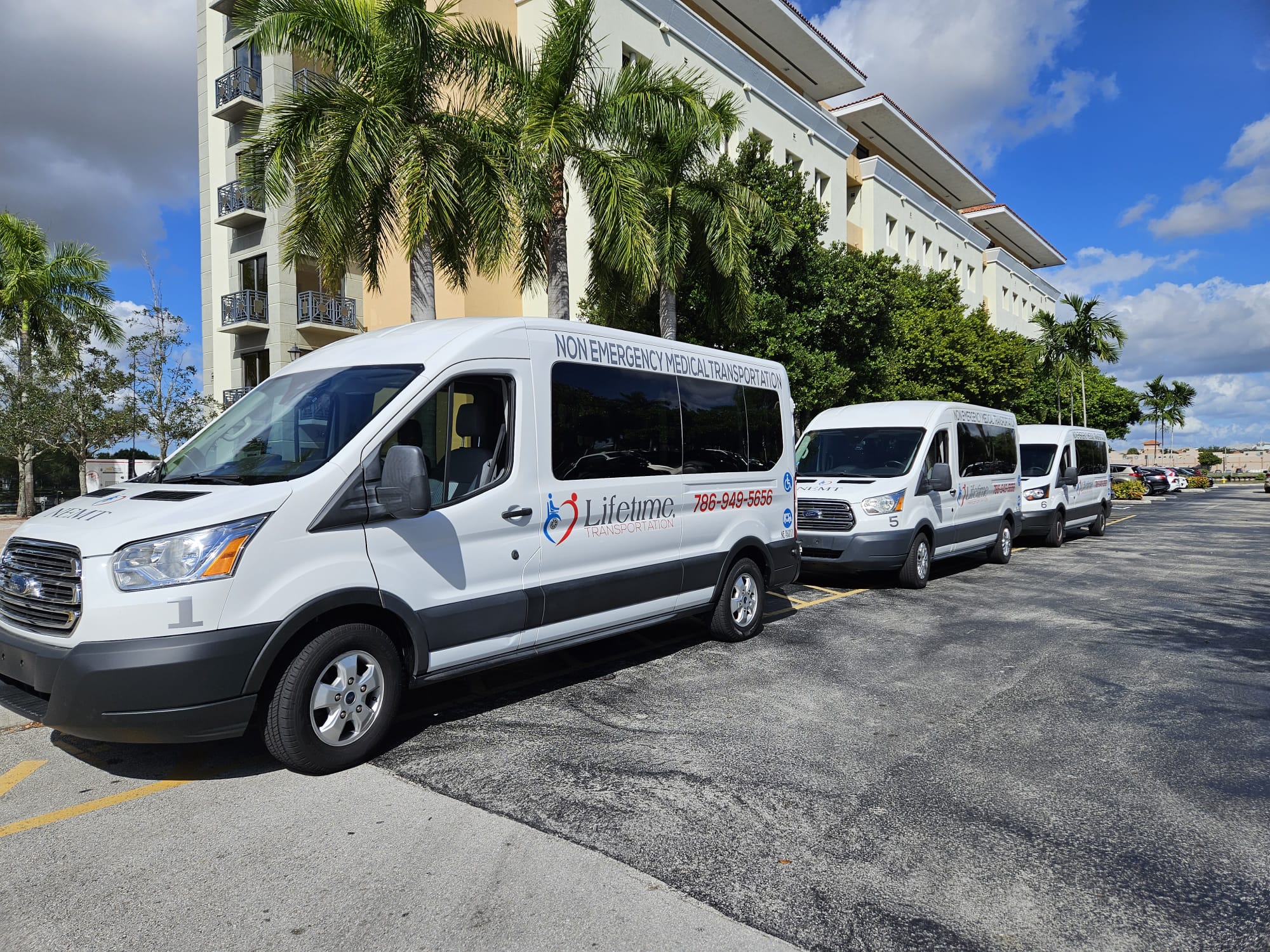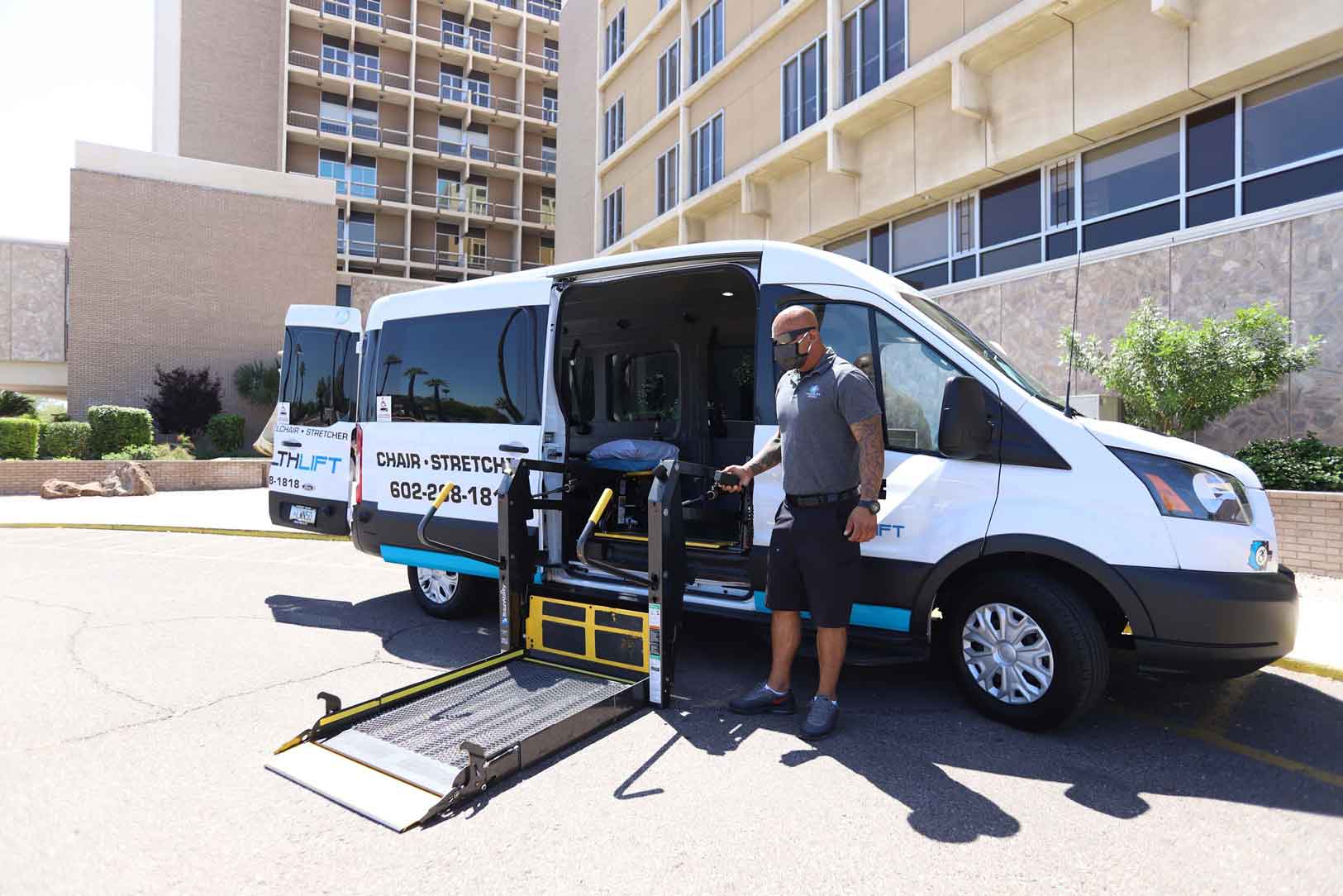Available and Affordable Medical Transport Options for Seamless Wellness Support
In the realm of medical care, the ease of access and cost of medical transportation are vital in making sure people can access the care they require when they need it. The capacity to seamlessly navigate transportation options can substantially influence a person's capability to obtain timely clinical attention, follow-up care, and general health. From non-emergency clinical transportation services to ingenious services like telehealth, the landscape of clinical transportation is advancing to meet the varied requirements of people. Taking into consideration the value of this facet in medical care distribution, checking out the array of alternatives available comes to be crucial for attending to spaces in ease of access and price.
Non-Emergency Medical Transportation Services

These solutions are staffed by qualified professionals who prioritize patient convenience and security throughout transit. Chauffeurs are outfitted to handle people with differing medical demands and guarantee that all trips are hassle-free and smooth - Medical Transportation Services Near Me. Furthermore, non-emergency medical transportation solutions usually use customized vehicles that are wheelchair-accessible, making them suitable for a wide variety of patients with different wheelchair needs
Volunteer Driver Programs
Volunteer driver programs are crucial in giving transport help for people seeking non-urgent treatment. These programs depend on the generosity of volunteers that donate their time and lorries to help transportation clients to and from medical visits. By using volunteer vehicle drivers, organizations can provide a cost-efficient remedy for people who might not have accessibility to dependable transport.
One of the key advantages of volunteer vehicle driver programs is the customized treatment and attention that patients get. Unlike conventional transport services, volunteer motorists commonly establish a connection with the individuals they help, developing a thoughtful and supportive setting throughout what can be a demanding time. In addition, volunteer driver programs can assist link the space for individuals living in underserved or country areas where mass transit alternatives might be restricted.
Public Transport Options

Among the crucial her response advantages of mass transit is its widespread schedule in urban and country locations alike. This extensive network enables clients from diverse histories to take a trip to medical appointments with relative convenience. In addition, public transport systems are typically furnished to accommodate individuals with impairments, offering available travel choices for those with wheelchair difficulties.

Ride-Sharing and Transportation Network Business
The evolution of contemporary transportation alternatives for medical objectives expands past conventional public systems like trains and buses to encompass the innovative world of ride-sharing and transport network firms. Ride-sharing services such as Uber and Lyft have actually changed the way individuals take get more a trip to clinical visits, supplying benefit and adaptability to people who might not have access to their vehicles or standard public transportation. These systems permit users to request an adventure with the touch of a switch on their smart devices, offering door-to-door solution that can be particularly valuable for people with mobility obstacles or those requiring assistance.
Transportation network firms (TNCs) have actually also played a substantial duty in linking the space in medical transportation solutions. Companies like Veyo and RoundTrip focus on non-emergency medical transport, dealing with patients that require a greater level useful during their trips to clinical facilities. By partnering with medical care service providers and insurers, TNCs guarantee that people can access dependable and timely transportation solutions, inevitably contributing to improved wellness end results and patient contentment.
Telehealth and Virtual Appointments
Enhancing healthcare availability and benefit, telehealth and online appointments have become essential parts in modern-day clinical practices, revolutionizing the means patients engage with doctor. Telehealth leverages innovation to assist in remote interaction in between clients and health care professionals, providing a vast selection of services such as digital assessments, remote monitoring, and digital prescriptions. Digital consultations enable people to seek medical suggestions, diagnosis, and treatment from the comfort of their homes, getting rid of the need for physical visits to healthcare centers. This approach not only conserves time and minimizes transportation costs for individuals however important site also enhances the total effectiveness of medical care distribution.
Additionally, telehealth plays a critical duty in extending medical services to underserved communities, backwoods, and individuals with minimal movement. By breaking down geographical obstacles and increasing healthcare outreach, telehealth promotes very early treatment, continuity of care, and individual involvement. As innovation proceeds to advance, telehealth is positioned to play a progressively considerable function in forming the future of medical care shipment, fostering enhanced health and wellness end results and client fulfillment.
Conclusion

From non-emergency medical transport solutions to ingenious services like telehealth, the landscape of clinical transportation is evolving to fulfill the varied demands of individuals.Non-Emergency Medical Transport Provider facilitate the prompt and risk-free transport of individuals calling for non-urgent medical treatment to and from healthcare centers.The development of contemporary transport options for medical purposes expands past traditional public systems like trains and buses to encompass the ingenious world of ride-sharing and transport network companies.Transportation network firms (TNCs) have also played a substantial function in linking the void in clinical transportation services. Non-Emergency Medical Transportation Services, Volunteer Chauffeur Programs, Public Transport Options, Ride-Sharing and Transportation Network Firms, and Telehealth and Virtual Consultations all play a vital role in addressing transport barriers to health care accessibility.